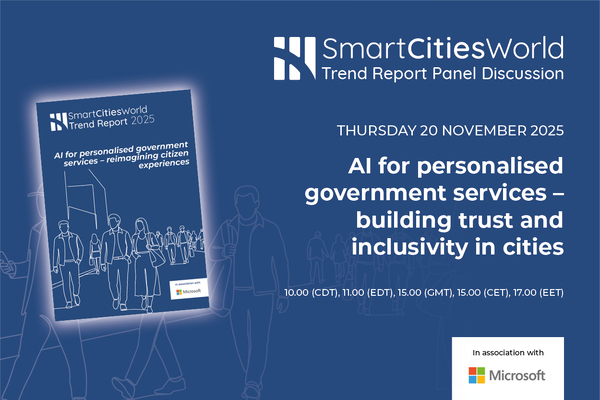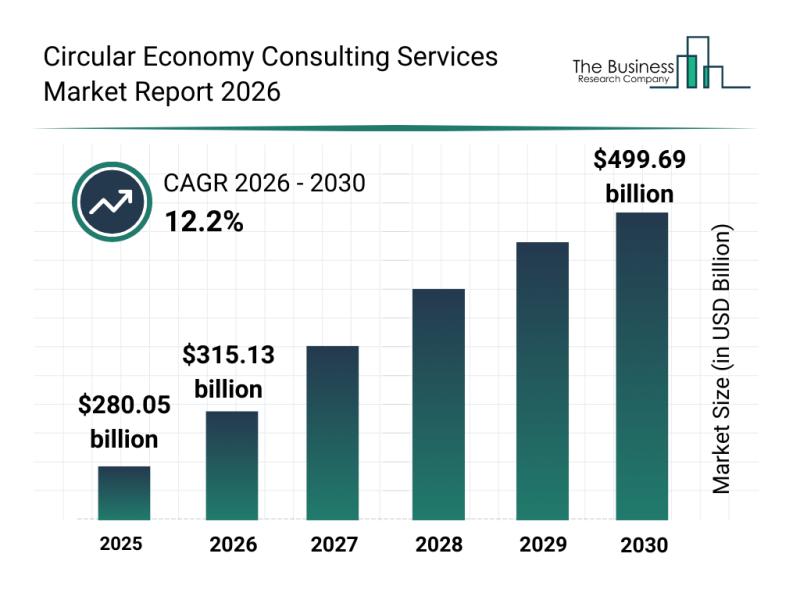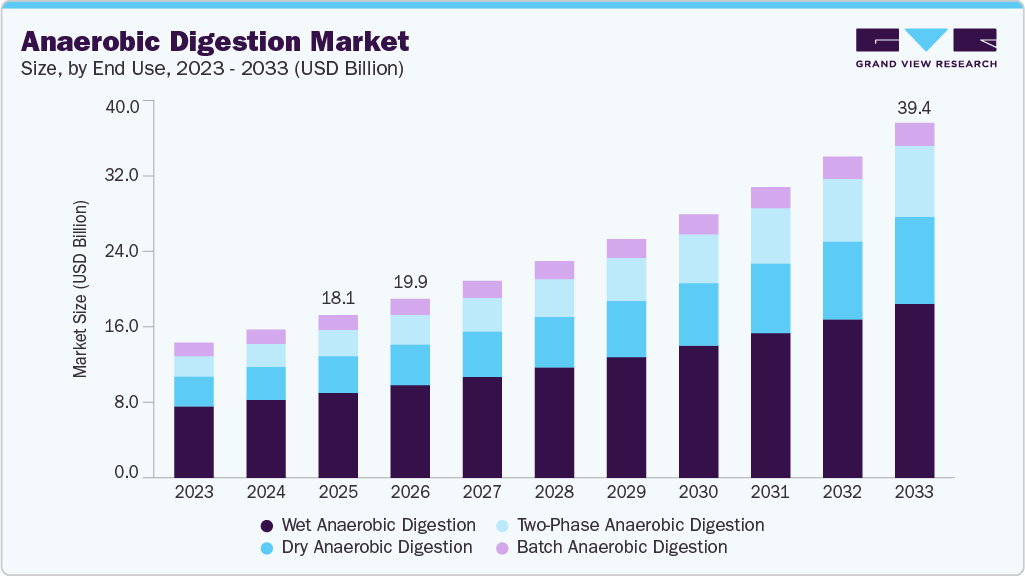Trend Report Panel Discussion: AI for personalised government services – building trust and inclusivity in cities – Smart Cities World

Report on the Scheduled Virtual Panel: AI for Enhanced Citizen Services and Sustainable Urban Development
1.0 Introduction
A virtual panel has been scheduled to explore the application of Artificial Intelligence (AI) in transforming public service delivery within urban environments. The session, supported by Microsoft, will convene city leaders, technology experts, and public sector innovators. The primary objective is to discuss strategies for the responsible adoption of AI to create more personalised, accessible, and trusted government services. This initiative directly addresses the rising expectations of citizens in a digital-first society and aligns with several key United Nations Sustainable Development Goals (SDGs), particularly those focused on innovation, inequality, sustainable cities, and strong institutions.
2.0 Event Details
- Date: Thursday 20 November 2025
- Time: 10:00 (ET), 15:00 (GMT), 16:00 (CET), 17:00 (EET), 19:00 (GST)
- Duration: 60 minutes, followed by a Question & Answer session
3.0 Alignment with Sustainable Development Goals (SDGs)
The panel’s agenda is fundamentally linked to advancing the 2030 Agenda for Sustainable Development. The discussion on leveraging AI for public services will place significant emphasis on the following goals:
- SDG 9: Industry, Innovation and Infrastructure: The session will explore how AI represents a critical innovation for upgrading public infrastructure and making service delivery systems more resilient and efficient.
- SDG 10: Reduced Inequalities: A core theme is ensuring AI-enabled services are inclusive and accessible, reducing disparities by reaching underserved communities through multilingual platforms and tailored support.
- SDG 11: Sustainable Cities and Communities: The discussion directly supports the goal of making cities and human settlements inclusive, safe, resilient, and sustainable by improving the efficiency and responsiveness of municipal services.
- SDG 16: Peace, Justice and Strong Institutions: By focusing on governance, transparency, and data protection, the panel will address how to build effective, accountable, and inclusive institutions at the municipal level through the responsible deployment of AI.
- SDG 17: Partnerships for the Goals: The event itself is an example of a multi-stakeholder partnership, bringing together the public sector (Manchester City Council), the private sector (Microsoft), and civil society/media (SmartCitiesWorld) to achieve common goals.
4.0 Key Discussion Areas
The panel will address critical topics concerning the integration of AI into government operations, with a focus on achieving sustainable and equitable outcomes:
- Enhancing Accessibility and Efficiency: Analysis of how AI-powered assistants and chatbots can reduce service wait times and improve accessibility across multiple languages, directly contributing to SDG 10.
- Proactive and Personalised Services: The role of unified data and predictive analytics in delivering proactive services (e.g., benefit eligibility, license renewals), fostering more efficient and citizen-centric institutions in line with SDG 16.
- Equity and Inclusion: Strategies for cities to balance the drive for efficiency with the imperative of equity, ensuring AI-driven services do not perpetuate existing biases but instead actively reach underserved populations (SDG 10 & SDG 11).
- Governance, Trust, and Transparency: Examination of frameworks required to ensure transparency, data protection, and responsible AI deployment, which is crucial for building trust and strengthening public institutions (SDG 16).
- Implementation and Scalability: Practical steps for integrating AI into legacy systems, including the role of public-private partnerships and workforce training to build capacity for innovation (SDG 9 & SDG 17).
5.0 Projected Outcomes for Participants
Attendees are expected to gain actionable insights to advance their organisations’ strategic goals in alignment with the SDGs. Key takeaways include:
- A comprehensive understanding of AI’s potential to improve citizen satisfaction and contribute to building more effective public institutions (SDG 16).
- Knowledge of successful AI deployments in cities, providing models for service automation that support sustainable urban development (SDG 11).
- Insights into the ethical and regulatory considerations essential for building public trust and ensuring equitable service delivery (SDG 10 & SDG 16).
- Strategic guidance for city leaders on preparing their organisations for the effective adoption and scaling of AI technologies (SDG 9).
6.0 Panel Composition
The panel will feature a multi-stakeholder composition, reflecting the collaborative approach of SDG 17.
- Luke Antoniou: Senior Editor, SmartCitiesWorld (Moderator)
- Representative (To be announced): Microsoft
- Representative (To be announced): Manchester City Council
Analysis of Sustainable Development Goals in the Article
1. Which SDGs are addressed or connected to the issues highlighted in the article?
-
SDG 9: Industry, Innovation and Infrastructure
- The article focuses on the application of advanced technology (AI) to modernize public infrastructure and services. It discusses “AI technologies,” “digital-first society,” and integrating “AI into existing systems,” which are central to fostering innovation and upgrading infrastructure.
-
SDG 10: Reduced Inequalities
- A key theme is ensuring that the benefits of AI in public services are distributed fairly. The article explicitly mentions the need to “balance efficiency with equity, ensuring AI-enabled services reach underserved communities” and making services “inclusive” and “accessible across multiple languages.”
-
SDG 11: Sustainable Cities and Communities
- The entire context of the article is urban environments. It addresses “smart city developments,” “urban challenges facing local and central governments,” and bringing together “city leaders” to discuss how technology can improve life for city residents, making cities more inclusive and sustainable.
-
SDG 16: Peace, Justice and Strong Institutions
- The core subject is the improvement of government institutions. The article discusses making “government services” more “personalised, accessible, and trusted,” ensuring “transparency, data protection, and responsible AI deployment,” and “reducing service backlogs,” all of which contribute to more effective, accountable, and inclusive institutions.
-
SDG 17: Partnerships for the Goals
- The article highlights the collaborative approach needed to implement these technologies. It mentions scaling adoption “through partnerships” and the webinar itself is a collaboration between the public sector (“Manchester City Council”), the private sector (“Microsoft”), and a media/knowledge platform (“SmartCitiesWorld”).
2. What specific targets under those SDGs can be identified based on the article’s content?
-
SDG 9: Industry, Innovation and Infrastructure
- Target 9.c: Significantly increase access to information and communications technology. The article’s focus on a “digital-first society” and using AI-powered platforms to make government services more accessible directly supports the goal of increasing access to and utilization of advanced ICT.
-
SDG 10: Reduced Inequalities
- Target 10.2: By 2030, empower and promote the social… inclusion of all. The article’s emphasis on creating “inclusive citizen services” and ensuring AI solutions “reach underserved communities” directly aligns with this target of promoting inclusion for all citizens.
-
SDG 11: Sustainable Cities and Communities
- Target 11.3: By 2030, enhance inclusive and sustainable urbanization and capacity for… sustainable human settlement planning and management. The discussion on “smart city developments” and using AI to manage “urban challenges” relates to enhancing the capacity for managing cities in a more sustainable and inclusive way.
-
SDG 16: Peace, Justice and Strong Institutions
- Target 16.6: Develop effective, accountable and transparent institutions at all levels. The article directly addresses this by exploring how AI can create “trusted government services,” improve efficiency by “reducing service backlogs,” and establish governance for “transparency, data protection, and responsible AI deployment.”
- Target 16.7: Ensure responsive, inclusive, participatory and representative decision-making at all levels. The goal of delivering “personalised, proactive, and inclusive citizen services” that are “tailored to their needs” is a clear effort to make institutions more responsive to the populace.
-
SDG 17: Partnerships for the Goals
- Target 17.17: Encourage and promote effective public, public-private and civil society partnerships. The article provides a direct example of this target by mentioning the need to “scale adoption through partnerships” and by featuring a collaboration between public (Manchester City Council) and private (Microsoft) entities.
3. Are there any indicators mentioned or implied in the article that can be used to measure progress towards the identified targets?
-
For SDG 9 (Innovation and Infrastructure):
- Implied Indicator: The adoption rate of AI technologies in public service delivery. The article discusses “practical steps cities can take to integrate AI into existing systems and scale adoption,” implying that the extent of this integration is a key measure of progress.
-
For SDG 10 (Reduced Inequalities):
- Implied Indicator: Accessibility of services for diverse populations. The article mentions making services “accessible across multiple languages and platforms” and reaching “underserved communities,” suggesting that measuring the reach and use of these services by different demographic groups would be a relevant indicator.
-
For SDG 11 (Sustainable Cities):
- Implied Indicator: Citizen satisfaction with urban services. The article states that a key outcome is “improving citizen satisfaction,” which can be directly measured to gauge the effectiveness of smart city initiatives.
-
For SDG 16 (Strong Institutions):
- Implied Indicators:
- Reduction in service delivery times and backlogs. The article mentions that AI can “reduce wait times” and “service backlogs,” which are quantifiable metrics of institutional efficiency.
- Level of public trust in government services. A stated goal is to build “trust in personalised government services” through “transparency, data protection, and responsible AI deployment,” making public trust a critical indicator.
- Implied Indicators:
-
For SDG 17 (Partnerships):
- Implied Indicator: The number and scope of public-private partnerships for smart city development. The article’s structure, sponsorship, and content all point to partnerships as a key mechanism, implying that their formation and success are important measures.
SDGs, Targets, and Indicators Summary
| SDGs | Targets | Indicators (Implied from Article) |
|---|---|---|
| SDG 9: Industry, Innovation and Infrastructure | 9.c: Significantly increase access to information and communications technology. | Adoption rate of AI technologies in public service delivery. |
| SDG 10: Reduced Inequalities | 10.2: Empower and promote the social, economic and political inclusion of all. | Proportion of underserved communities accessing AI-enabled government services. |
| SDG 11: Sustainable Cities and Communities | 11.3: Enhance inclusive and sustainable urbanization and capacity for… planning and management. | Level of citizen satisfaction with urban services. |
| SDG 16: Peace, Justice and Strong Institutions | 16.6: Develop effective, accountable and transparent institutions at all levels. | Reduction in service wait times and backlogs; Level of public trust in government services. |
| 16.7: Ensure responsive, inclusive, participatory and representative decision-making. | Availability of personalised and proactive services tailored to citizen needs. | |
| SDG 17: Partnerships for the Goals | 17.17: Encourage and promote effective public, public-private and civil society partnerships. | Number and scope of public-private partnerships for implementing smart city technologies. |
Source: smartcitiesworld.net
What is Your Reaction?
 Like
0
Like
0
 Dislike
0
Dislike
0
 Love
0
Love
0
 Funny
0
Funny
0
 Angry
0
Angry
0
 Sad
0
Sad
0
 Wow
0
Wow
0
















































;Resize=620#)





























